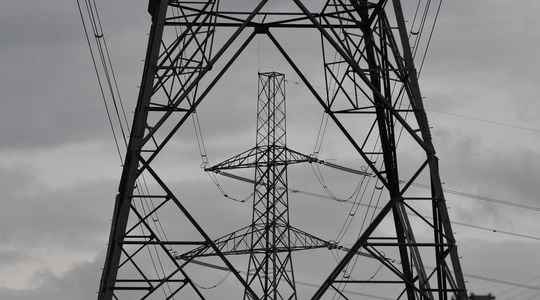“Electricity is the army of the French economic recovery.” In the context of a pandemic erected as an enemy against which “we are at war”, it is tempting to attribute these remarks to Emmanuel Macron or to his Minister of the Economy, Bruno Lemaire. They were actually pronounced in 1946 by Marcel Paul, former member of the CGT Energie, resistance fighter, deportee, communist minister in the de Gaulle government and one of the architects of the nationalization of EDF.
More than seventy-five years later, they have lost none of their sharpness at a time when electricity prices are soaring on the markets and breaking records. Less than three months before the first round of the presidential election, the subject is explosive. However, all the candidates are not speaking out on the subject, except on the left and the far left. Blocking of prices (including gas) and nationalization of EDF and Engie for Fabien Roussel, nationalization of EDF for Yannick Jadot, blocking of prices also for Jean-Luc Mélenchon. Nostalgia when you hold us… As for the silence of others, it is the implicit recognition that nothing can be done in the short term other than to limit the impact of the rise for businesses and households, which is the approach of the government.
A “nothing” that will cost at least 8 billion euros to the State budget and as much to EDF in 2022… Note in passing that the 8 billion carried by EDF only represent for the company the direct cost of measures announced. What about the destruction of value of the public company whose share price plummeted after this announcement, or even the opportunity cost of such a drain at a time when EDF is building a financing plan for future reactors to be built? ?
A $16 billion patch
16 billion euros: never has a patch cost so much. Because the measures announced do not solve the basic problem. And for good reason: there is no short-term solution. These 16 billion euros do not represent anything other than the price of inaction, the absence of anticipation and the preeminence of ideology in a field which, on the contrary, requires consistency, taking into account the long term and realism.
Whose fault is it ? To the government, which has lazily taken over, for political and ideological reasons, the political agreement of 2012 between the socialist party and the ecologists, which became law under François Hollande, providing for the closure of nuclear power plants still able to operate?
To the State, a strange strategist who did not want to see the necessary and massive increase in electricity consumption to come, thus avoiding reopening the nuclear debate, and forgets in his prospective scenarios to integrate safety margins and principles of nuclear safety?
To the State shareholder, which steers EDF sometimes in the name of the interests of the company, sometimes in the name of the general interest which it redefines according to extra-energy considerations?
To the public operator, for the mediocre performance of the availability of its reactors and the erosion of its industrial know-how?
At the market, short-termist… moreover constructed as such?
To Europe, which defines market rules favorable to competition while working to distort them one by one to promote the development of renewable energies?
To Germany, which has put European energy policy in tune with the preservation of its industrial power, by imposing the idea that “low-carbon energy” meant “renewable energy” and by acting as if controllable production tools ( thermal and nuclear power plants) and non-controllable (wind turbines and solar power plants, intermittent) were equal?
To certain Member States, who persist in believing that Europe’s vocation is to be a large market, as if the context of the 2020s – the strong comeback of geopolitics and sovereignty as economic weapons, eastern borders and internal destabilizations – had anything to do with the illusions of the end of history in the 1990s?
Notice to candidates: there is no room for simplism or scapegoating in the reconstruction of a credible energy system, at European and national level. The urgency is to (re)build our security of supply – in terms of gas as well as the minerals and raw materials of the transition – without which moderation of the rise in prices and decarbonization will remain a dead letter. In France, let’s move from words to actions to extend and renew the nuclear fleet.
